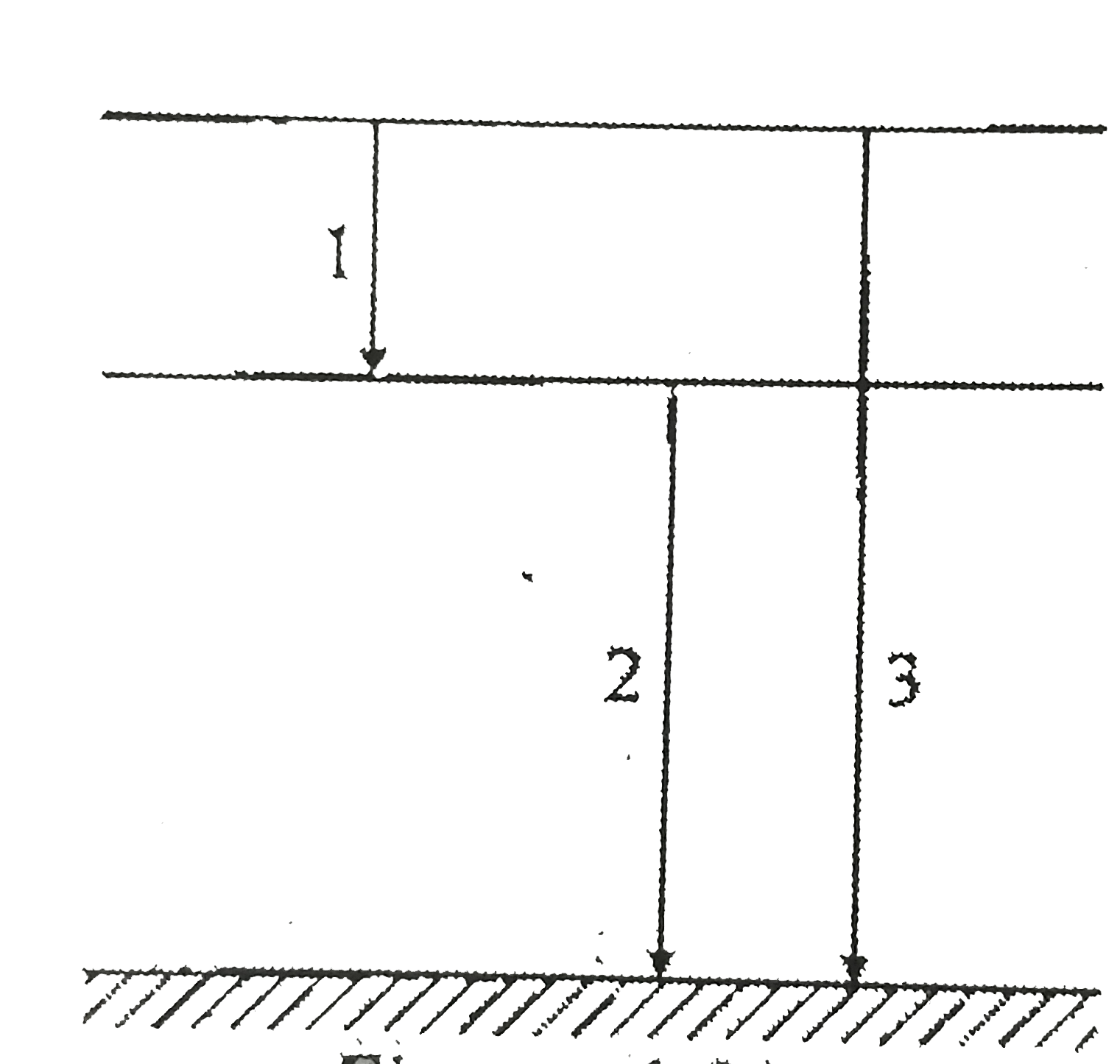The wavelength of the short radio waves, microwaves, ultraviolet waves are λ1,λ2 and λ3, respectively, Arrange them in decreasing order.
λ1,λ3,λ2
λ1,λ2,λ3
λ3,λ1,λ2
λ2,λ1,λ3
The correct Answer is:B
λRadio>λmicrowave>λUV
Topper's Solved these Questions
- WAVE OPTICS AND ELECTROMAGNETIC THEORYBOOK - ERRORLESSCHAPTER - WAVE OPTICS AND ELECTROMAGNETIC THEORYEXERCISE - PAST YEARS QUESTIONS
45 Videos
- WAVE OPTICS AND ELECTROMAGNETIC THEORYBOOK - ERRORLESSCHAPTER - WAVE OPTICS AND ELECTROMAGNETIC THEORYEXERCISE - ASSERTION & REASON
27 Videos
- WAVE OPTICS AND ELECTROMAGNETIC THEORYBOOK - ERRORLESSCHAPTER - WAVE OPTICS AND ELECTROMAGNETIC THEORYEXERCISE - NCERT BASED QUESTIONS (Polarization of Light)
17 Videos
- RAY OPTICSBOOK - ERRORLESSCHAPTER - RAY OPTICSEXERCISE - Assertion & Reason
30 Videos
Similar Questions
Knowledge Check
The wavelength of Ka , X-rays for lead isotopes Pb208,Pb206,Pb204 areλ1,λ2 andλ3, resperctively. Then
Aλ1=λ2>λ3Bλ1>λ2>λ3Cλ1<λ2<λ3Dλ2=√λ1λ3The wavelengths of photons emitted by electron transition between two similar leveis in H and He+ are λ1 and λ2 respectively. Then :-
Aλ2=λ1Bλ2=2λ1Cλ2=λ1/2Dλ2=λ1/4Hydrogen (H), deuterium (D), singly ionized helium (He+) and doubly ionized lithium (Li) all have one electron around the nucleus. Consider n=2 to n=1 transition. The wavelength of emitted radiations are λ1,λ2,λ3 and λ4 respectively. then approximately
Aλ1=λ2=4λ3=9λ4B4λ1=2λ2=2λ3=λ4Cλ1=2λ2=2√2λ3=3√2λ4Dλ1=λ2=2λ3=3√2λ4
The wavelengths and frequencies of photons in transition 1,2 and 3 for hydrogen like atom are λ1,λ2,λ3,v1,v2 and v3 respectively. Then:

View SolutionThe wavelength of electron waves in two orbits (λ1:λ2)
View SolutionA dye absorbs a photon of wavelength λ and re− emits the same energy into two phorons of wavelengths λ1 and λ2 respectively. The wavelength λ is related with λ1 and λ2 as :
View SolutionIn the figure shown a sinusoidal wave is generated at the end 'A'. The wave travels along positive x−axis and during its motions it encounter another string BC at the junction 'B' at x=0. The density of strings AB and BC and ρ and 9ρ respectively and their radii of cross sections are 2r and r. The wave funcation. amplitude and wavelength of incident wavs are respectively yr,Ar,λr and yt,At,λt repectively

The ratio of wavelengths λr to λt (i.e. λr:λt) will be
View SolutionIn the figure shown a sinusoidal wave is generated at the end 'A'. The wave travels along positive x−axis and during its motions it encounter another string BC at the junction 'B' at x=0. The density of strings AB and BC and ρ and 9ρ respectively and their radii of cross sections are 2r and r. The wave funcation. amplitude and wavelength of incident wavs are respectively yr,Ar,λr and yt,At,λt repectively

The ratio of wavelengths λr to λt (i.e. λr:λt) will be
View Solution
